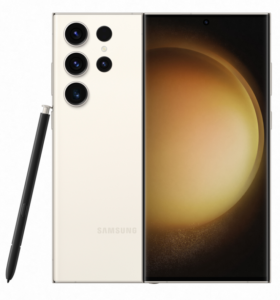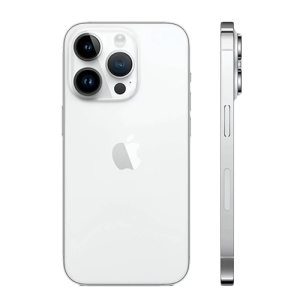Samsung Galaxy S23 and iPhone 14 are flagship smartphones. As high-end smartphones, here is a comparison of Samsung Galaxy S23 vs iPhone 14 that you should know.
Samsung Galaxy S23 is the latest phone released by Samsung in early February 2023. As a new smartphone, it undoubtedly brings impressive specifications to support daily user activities.
However, in the market, there is also a flagship phone that was released earlier, which is the iPhone 14. This Apple product carries specifications that are equally advanced compared to the Galaxy S23.
Samsung Galaxy S23 vs iPhone 14
Comparison of Samsung Galaxy S23 and iPhone 14, we will discuss their design, display, performance, and price for a more comprehensive understanding.
Design and Display
The Samsung Galaxy S23 has dimensions of 146.3 x 70.9 x 7.6 mm and weighs 168 grams. It features a minimalist design with a combination of Gorilla Glass Victus 2 and an aluminum frame, and comes in Phantom Black, Cream, Green, and Lavender color options.
The latest 5G smartphone from Samsung sports a 6.1-inch full-HD+ Dynamic AMOLED 2X display with a refresh rate ranging from 48Hz to 120Hz.
The display features Vision Booster technology to enhance visibility in outdoor usage and is protected by Gorilla Glass Victus 2. It offers a touch sampling rate of 240Hz in Game Mode.
On the other hand, the iPhone 14 also utilizes Gorilla Glass and aluminum materials. However, it has smaller dimensions of 146.7 x 71.5 x 7.8 mm and weighs 172 grams. The iPhone 14 features a Super Retina XDR OLED display with a brightness level of up to 1200 nits, supported by HDR10 and Dolby Vision technologies.
The screen size is approximately 6.1 inches with a resolution of 1170 x 2532 pixels and an 86% screen-to-body ratio.
Performance
As flagship smartphones, both the Samsung Galaxy S23 and iPhone 14 are powered by high-performance processors and have ample RAM capacity. Starting with the Galaxy S23, it features the Snapdragon 8 Gen 2 Mobile Platform for Galaxy, which is claimed to have a GPU performance that is 45% better than the Snapdragon 8 Gen 1.
The chipset is paired with 8GB of RAM and offers internal storage options of up to 512GB. It has a 3,900mAh battery capacity that supports 25W fast wired charging, 15W wireless charging, and Wireless PowerShare to charge other compatible devices wirelessly.
On the other hand, the iPhone 14 is equipped with the Apple A15 Bionic chip, which has been enhanced in terms of performance, a hexa-core CPU, and an Apple 5-core GPU. It has 6GB of RAM and comes in storage options of 128GB, 256GB, and 512GB.
The battery capacity of the iPhone 14 is 3,279mAh, which is claimed to provide up to 20 hours of video playback and 80 hours of audio playback.
Camera
The comparison between the Samsung Galaxy S23 and iPhone 14 can also be seen in terms of the camera. The Galaxy S23 features a triple rear camera setup, consisting of a 50MP main camera, a 12MP ultrawide camera, and a 10MP telephoto camera. On the front, there is a 12MP selfie camera.
Samsung has provided several enhanced camera features in the Galaxy S23 model, including 8K video recording at 30fps, 360-degree audio recording, and many more.
On the other hand, the iPhone 14 has a 12MP primary camera with an f/1.5 aperture and OIS technology, along with a 12MP ultrawide camera with an f/2.4 aperture. Apple claims that the phone’s camera can capture 49% more light compared to the iPhone 13.
As for the front camera, Apple has incorporated a 12MP TrueDepth Camera with an f/1.9 aperture. The advantage of Apple’s front camera is its autofocus capability and the ability to capture 38% more light.
In terms of price, it is important to note that the prices of both the Samsung Galaxy S23 and iPhone 14 can vary depending on the region and storage options chosen. It is recommended to check the official websites or authorized retailers for the most accurate and up-to-date pricing information.
Compare Spek Galaxy S23 vs Apple iPhone 14
| Galaxy S23 | iPhone 14 | |
|---|---|---|
| Display | 6.1-inch AMOLED; FHD+ (1,080×2,340 pixels); 120Hz Adaptive Refresh Rate; 1,750 nits | 6.1-inch OLED; 2,532×1,170 pixels; 1,200 nits |
| Pixel density | 425 ppi | 460 ppi |
| Dimensions (Inches) | 2.79 x 5.76 x 0.3 inches | 5.78 x 2.82 x 0.31 inches |
| Dimensions (Millimeters) | 70.9 x 146.3 x 7.6mm | 147 x 72 x 7.8mm |
| Weight (Ounces, Grams) | 5.93 oz.; 168.1g | 6.07 oz.; 172g |
| Operating System | Android 13 | iOS 16 |
| Camera | 50-megapixel (wide), 12-megapixel (ultra-wide), 10-megapixel (telephoto) | 12-megapixel (wide), 12-megapixel (ultrawide) |
| Front-facing camera | 12-megapixel | 12-megapixel |
| Video capture | 8K at 30 fps | 4K at 60 fps |
| Processor | Galaxy-optimized Qualcomm Snapdragon 8 Gen 2 | Apple A15 Bionic |
| RAM/Storage | 8GB RAM + 128GB 8GB RAM + 256GB | 128GB, 256GB, 512GB |
| Expandable storage | None | None |
| Battery/Charging speeds | 3,900 mAh (25W wired charging) | Undisclosed; Apple claims 20 hours of video playback (25W wired charging) |
| Fingerprint sensor | In-display | None (Face ID) |
| Connector | USB-C | Lightning |
| Headphone jack | None | None |
| Special features | 5G, 120Hz display, water-resistant (IP68), wireless PowerShare to charge other devices | 5G enabled; MagSafe; water-resistant (IP68); wireless charging; dual-SIM capabilities (e-SIM) |
| Pricing |  |
 |